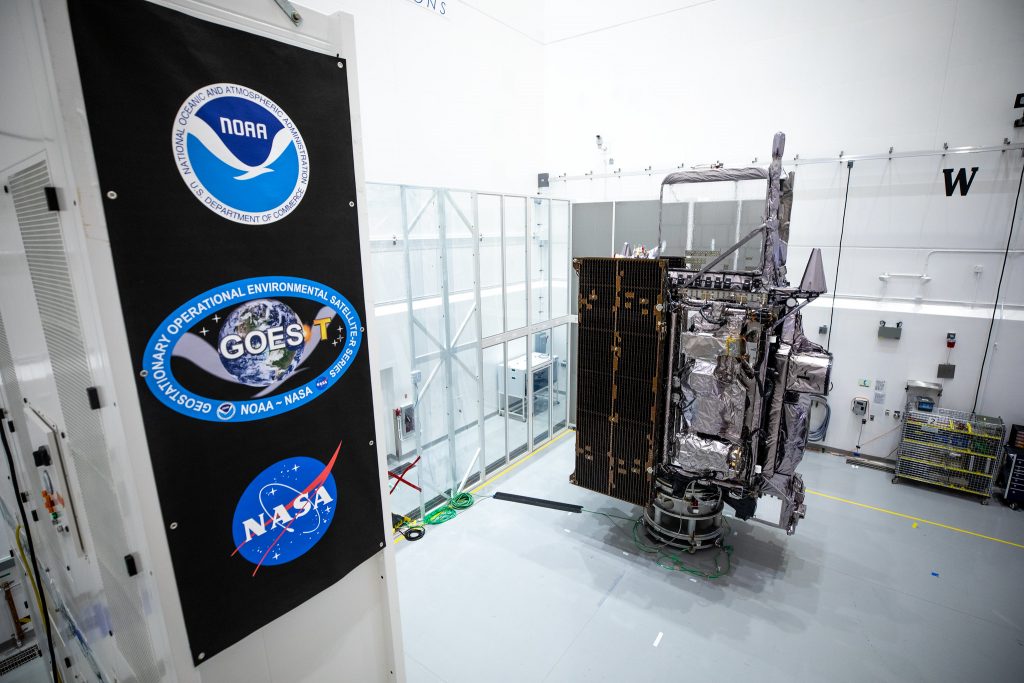
By Jim Cawley
NASA’s Kennedy Space Center
An activity completed at Astrotech’s Space Operations facility in Titusville today brings NOAA’s Geostationary Operational Environmental Satellite T (GOES-T) mission one significant step closer to its March 1, 2022, liftoff from Cape Canaveral Space Force Station in Florida in just over a month.
On Jan. 27, 2022, the spacecraft was lifted and mated to the payload adapter – a piece of hardware that interfaces mechanically between the rocket and the spacecraft. The payload adapter also has the capability built into it to allow the spacecraft to separate from the rocket when it gets on orbit.
“It is the start of integrated operations, which is now the satellite and the rocket are starting to come together,” said GOES-T Mission Manager Rex Engelhardt. “We’ve been doing a lot of analysis, but this is the first piece of rocket hardware that we’re putting together with the satellite.”
Next week, the first stage of the United Launch Alliance (ULA) Atlas V 541 rocket for GOES-T will be erected. ULA also will be cleaning each half of the payload fairing during this timeframe. Upcoming important February activities include encapsulation, where the two pieces of the payload fairing come together to secure the satellite inside, hoist to the transporter, and transport and mate to the launch vehicle. GOES-T is targeted to roll to the launch pad on Feb. 28.
The third satellite in NOAA’s GOES-R series, GOES-T’s launch is managed by NASA’s Launch Services Program based at the agency’s Kennedy Space Center in Florida, America’s multi-user spaceport. The GOES satellite network helps meteorologists observe and predict local weather events that affect public safety, including thunderstorms, tornadoes, fog, hurricanes, flash floods, and other severe weather. GOES-T will provide critical data for the U.S. West Coast, Alaska, Hawaii, Mexico, Central America, and the Pacific Ocean.
